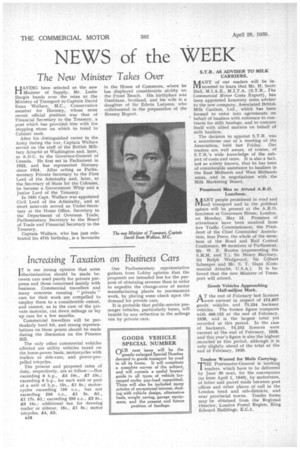Increasing Taxation
Page 24

If you've noticed an error in this article please click here to report it so we can fix it.
on Business Cars
I T is our strong opinion that some discrimination should be made between cars used purely for private pur poses and those concerned mainly with business. Commercial travellers and many concerns running " private" cars for their work are compelled to employ these to a considerable extent, and cannot, as in the case of the private motorist, cut down mileage or lay up cars for a few months.
Commercial travellers will be particularly hard hit, and strong represen tations on these points should be made during the discussion on the Finance Bill.
The only other commercial vehicles affected are utility vehicles taxed on the horse-power basis, motorcycles with trailers or side-cars, and power-propelled tricycles.
The present and proposed rates of duty, respectively, are as follow:—Not exceeding 6 h.p., £4 10s., £7 10s.; exceeding 6 h.p., for each unit or part of a unit of h.p., 155., £1 5s.; motor cycles exceeding 150 c.c., but not exceeding 250 c.c., £1 2s. 6d., £1 17s. 6d.; exceeding 250 c.c., £2 5s., £3 15s.; additional tax for drawing trailer or sidecar, 15s., £1 5s.; motor tricycles, £4, £5.
618 Our Parliamentary representative gathers from Lobby opinion that the proposals are intended less for the purpose of obtaining revenue than in order to expedite the change-over of motor manufacturing plants to rearmament work, by placing some check upon the demand for private cars.
It is probable that public-service passenger vehicles, particularly buses, will benefit by any reduction in the mileage run by private cars.












































































